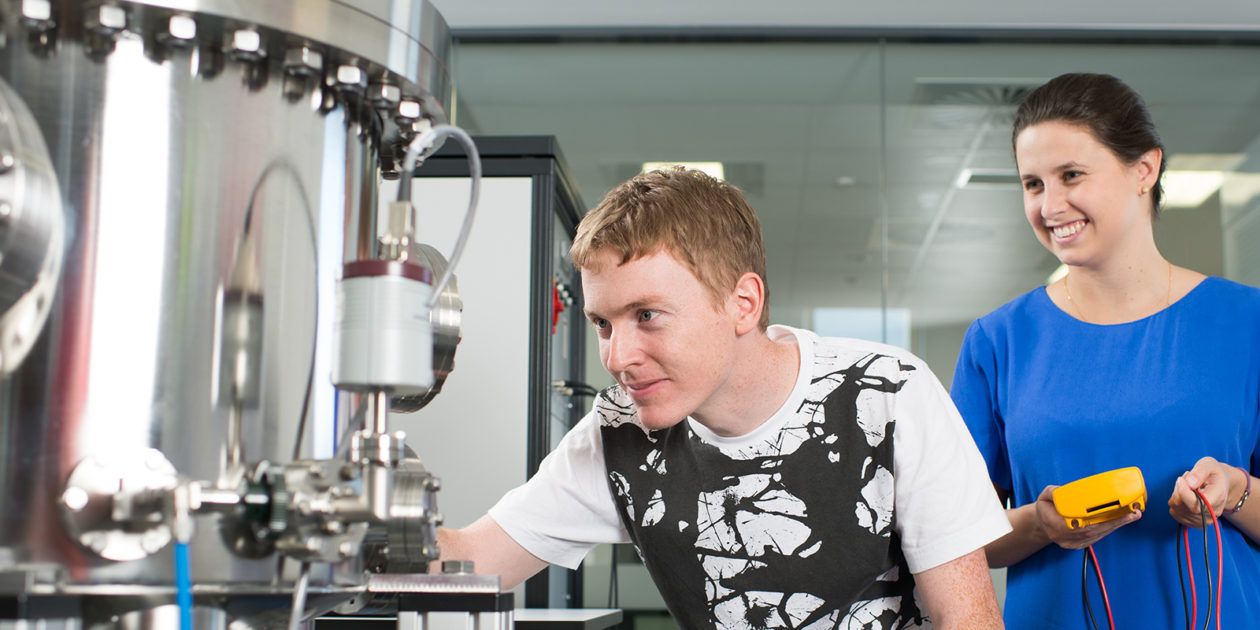Overview
Overview
Chemical engineering uses chemistry, physics and mathematics to convert raw materials or chemicals into more useful or valuable forms. In this double degree, the chemical engineering component explores the development, design and operation of processes for the extraction, conversion and recovery of materials. Throughout your studies, you will specialise in either biosystems engineering, chemical engineering or oil and gas.
The chemistry component develops your knowledge in chemistry and a range of skills necessary for a career in a modern analytical or industrial laboratory. You will develop a sound foundation in both theoretical and practical aspects and undertake units in computer programming, mathematics and statistics along with a continuous study of analytical chemistry and instrumental analysis. Your learning will be largely based in our laboratories which are amongst the best equipped in Australia.
In your first year you will complete the Engineering Foundation Year (EFY). The EFY builds a solid base of the fundamental concepts common to all areas of engineering. The EFY was developed in partnership with industry to create a curriculum that is reflective of engineering practice.
To satisfy professional requirements, students must complete at least 12 weeks or equivalent of exposure to professional engineering practice. This requirement can be met by appropriate work experience or through a combination of technical and non-technical activities. Students must demonstrate that they have met these requirements by using a formal Log Book to record their professional experiences during the period of their degree study.
Please refer to the handbook for additional course overview information.
What jobs can the Chemical Engineering and Chemistry course lead to?
- Process Engineer
- Chemist
- Chemical Engineer
What you'll learn
- apply chemical and engineering principles to process engineering design and development, including sound risk management, environmental and occupational health and safety practice
- think critically and creatively to generate innovative and optimum solutions
- identify, evaluate and synthesise information from a range of sources to optimise process engineering design and development
- communicate effectively in ways appropriate to the discipline, audience and purpose
- use appropriate information, chemical and process technologies (recognising their advantages and limitations) in the design and development of sustainable process systems
- engage in continuous education, training and research, and take control of their own learning and development
- recognise and apply international standards and best practice in chemistry and process engineering
- demonstrate respect for cultural diversity
- be ‘career ready’ for the chemical and process engineering professions, demonstrate leadership qualities, and work ethically and professionally both within a team and independently
